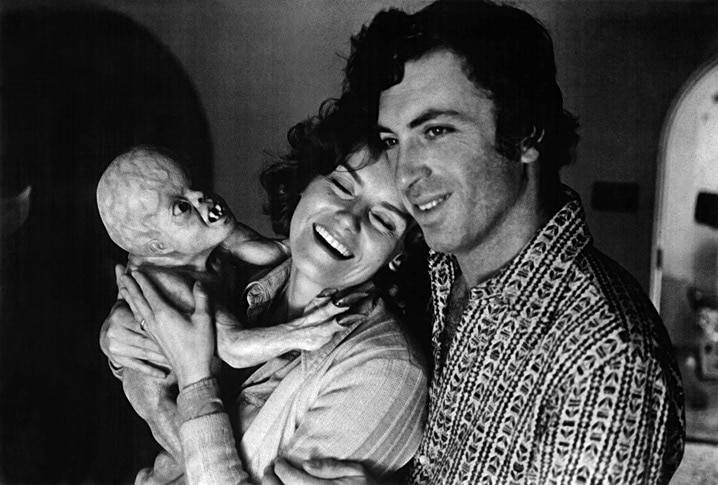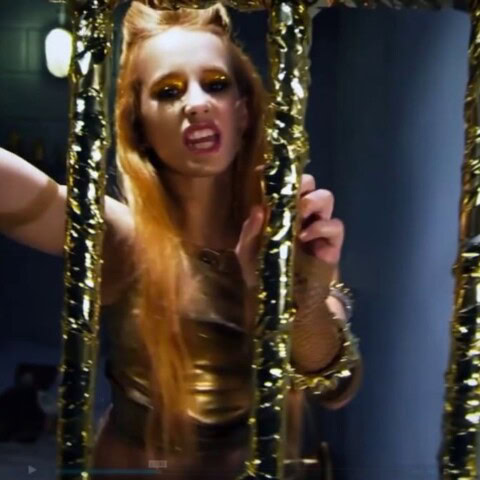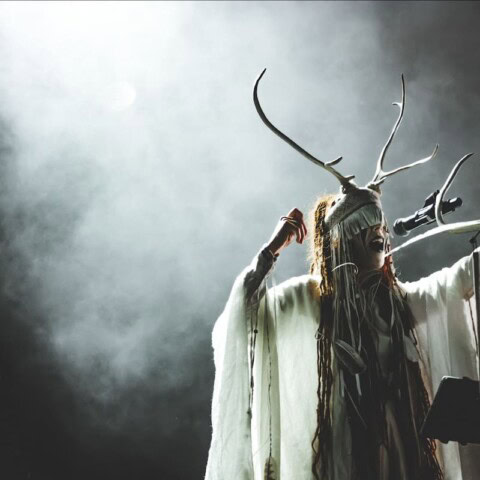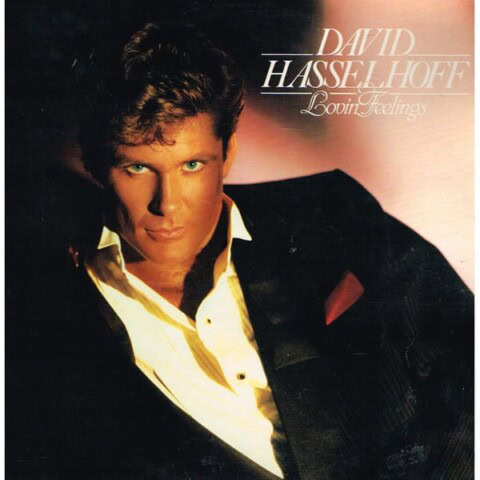In the flush of first success and on their first trip to New Zealand in January 2004, Gary Steel met up with two thirds of MUSE in a bar in Beresford St, just off Karangahape Rd. Below, the original story from Metro magazine, and the full transcript of the encounter.

High Camp
It’s one of the hottest days of the year and I’m leading two-thirds of one of the hottest bands on the planet to a Beresford bar and what do they choose to quench their thirsts? Uh, coffee please.
Matthew Bellamy is the insanely talented leader, vocalist and multi-instrumentalist of Muse; Dominic Howard is the trio’s drummer. They’re downunder to win over new fans to the dramatic sound that took their latest album Absolution to the top of the UK charts in 2003, and saw them performing in arenas to throbbing masses of humanity throughout Europe.
And here’s Bellamy – looking every inch the stick-thin British pop artist in his Japanese-style shirt and sun-denied skin – waxing rhapsodic about Rachmaninov and Tchaikovsky and Piha. And his mate, the typical drummer, prosaic and forthright and concerned more with the day-to-day business of playing music and like every rock drummer since Ringo a bit of a card.
Muse may be popular beyond their wildest expectations, but they’re not exactly cool. Their brand of power pop comes laced in the preening histrionics and high camp drama of Queen, fused with the grittier post-grunge intensity of Jeff Buckley. It’s an emotionally disarming, refreshingly bare-faced, un-ironic 21st century pop expression, and I try to quizz Bellamy about it. He’s a huge Nirvana fan, but even Kurt Cobain hid behind a sneer.

“A lot of the songs are autobiographical and there are a couple that are weird dreams. It’s not everyday stuff, it’s the otherworldly stuff that goes on in your mind. The otherworldly stuff offends some people. It’s a little over the top in places… There are a lot of things that are not very cool to sing about. I think if you are a true artist, it’s worthwhile trying to find a way to communicate all those different things you think about and feel.”
Ah, feelings. He goes on about those a lot, does Bellamy.
Consistently cited – and indicted – for carrying the influence of 70s progressive rock bands, critics of Muse reckon their music is too virtuosic, too pretentious.
” I’m not really a fan of progressive rock from the 70s, you know. I’m not really into it, because I found it difficult to feel anything. Listening to piano music from the 19th century, there’s a combination between technical ability and emotion. I hope we do have that balance between being technically difficult and being emotional.
“There’s one song with some piano stuff on it, where I experimented with this repetitious, extremely mechanical piano part, and it devolved to the opposite of that, with an emotional closure. It was this weird piano piece I was working on, and I tried to make a song out of it. But that wasn’t to demonstrate my piano ability. I think it’s about interesting dynamics.
But there’s always been an emphasis on SONG. Feeling. Structure. There’s a point where you get so good on your instrument, so technical, that the song disappears. And it becomes a demonstration, and you play jazz! It’s important that there’s an appreciation of human faults. Like Jimi Hendrix was an amazing guitarist, but there were moments where he made mistakes, and they were meaningful mistakes.”
 Muse transcript in full, 31-1-04
Muse transcript in full, 31-1-04
Matthew Bellamy (lead vox, guitars, keyboards)
Dominic Howard (drums & percussion)
(Dominic spent his Xmas in Devon. Matthew spent Xmas with his Italian girlfriend and her family; and he’s been building furniture for his new flat).
Gary – Has it been pretty full-on since Absolution came out, or spread out?
Dominic – Up until August 2002 it was, and then after that we had a little break away from the band, and that’s when we started thinking about new songs for this album. We didn’t really have anything else to do but think about the new album, no tours or promotion or anything like that. We got this big warehouse room in London and spent a lot of time working things out, doing demos, trying things out. Since then we’ve just been recording… it’s been pretty much full-on doing gigs, doing a big tour, release the album, another big tour.
It’s been really good. We’ve been playing massive venues, and we were concerned about how that was going to feel, because it’s a jump up from what we’ve done previously, putting on that size of gig, for 17,000 people.
Gary – There’s a long history of bands getting up to stadium size, and then touring America, and their sound changes. Have you found that the projection of the music has changed?
Matthew – Not all the music, but some of it has an epic nature, so those epic moments work really well in the bigger venues. Whereas some other things don’t work so well. I think this album’s got both sides. There are songs that sound way better than we were rehearsing them in a live, open space.
Dominic – I think the way we’re playing changed quite a lot because of those bigger gigs. The physical aspect of it. The new songs changed quite a bit… they always do sound different to the album when we play them live. They change every night.
(Matthew says they’ve played in Roman Colosseum-type venues, and that they were some of the best ones – ‘so old’).
Gary – Have you done much of this Big Day Out kind of thing?
Dominic – We’ve done a lot of festivals, yeah. This is the first one we’ve done in such hot weather.
Gary – BDO seems to encourage people to appreciate different music styles… a positive aspect of the thing.
 Matthew – A lot of people my age, they’ve always been into a lot of different stuff, not just one thing. (Mentions enjoying rock AND dance and the leeching from one to the other).
Matthew – A lot of people my age, they’ve always been into a lot of different stuff, not just one thing. (Mentions enjoying rock AND dance and the leeching from one to the other).
Gary – Faves at BDO?
Matthew – Flaming Lips. There’s a few bands I want to check out… Datsuns, Darkness, Aphex Twin.
Gary – You could be as big as U2 in America… it would be easy. How do you see yourselves in terms of the marketplace.
Dominic – Success in itself is not necessarily driving us. Playing to new people is… the chance to come here and play to people who haven’t seen us before.
Gary – At the moment your music isn’t making any concessions to the US market. Any compromise.
Matthew – Success like that could be a change for a band, because it could be the means to suddenly conform and do what you’ve always done or do what you think is going to bring you more success or, or freedom to completely do what you want, and try new things out. I don’t think we would ever continue to do the kind of music that got us to this stage now.
Gary – I know you were into Nirvana when you were younger, but as a band it seems that MUSE are employing considerable virtuosity, yet coming out of an environment that doesn’t appreciate that.
Matthew – There’s one song with some piano stuff on it, where I experimented with musique concrete stuff, with this repetitious, extremely mechanical piano part, and it devolved to the opposite of that, with an emotional closure. It was this weird piano piece I was working on, and I tried to make a song out of it. But that wasn’t necessarily in order to demonstrate my piano ability. I think it’s interesting dynamics, loud and quiet thing, which a lot of people do, dynamic swings within songs.
I’m not really a fan of prog rock of the 70s, you know. I’m not really into it, because I found it difficult to feel anything. Listening to piano music from the 19th century, there’s a combination between technical ability and emotion. I hope we do have that balance between being technically difficult and being emotional.
Dominic – But there’s always been an emphasis on SONG. Feeling or structure or something. There’s a point where you get so good on your instrument, so technical, that the song disappears. And it becomes a demonstration, and you play jazz.
Matthew – It’s important that there’s an appreciation of human faults. Like Jimi Hendrix was an amazing guitarist, but there was always this kind of thing… moments where he made mistakes, but they were meaningful mistakes.
Gary – Do you like Wagner?
Matthew – (Laughs) I haven’t heard much of his stuff. I like Russian composers like Tchaikovsky or Rachmaninoff. (Talks about it being bold music with a certain darkness, and an appropriation of folk musics, and being able to evoke things really well. ) What I like about classical music in general is that it’s abstract… there’s no lyrical content in there, and the anonymous titles! You have to imagine, so it’s more imaginative than something with a title and a load of lyrics in it.
Gary – Are you happy with where the band’s at this point?
Matthew – I think we’re lucky to have got where we are. A lot of bands don’t even get to this point. We’re enjoying it.
Dominic – We certainly didn’t expect to get as far as we have really. It feels like we’re in control, it’s not mental where everything’s flying around and we don’t know what’s going on.
Gary – I notice a few bad reviews. Do you take note of that kind of stuff?
Matthew – (laughs) There’s usually a good one for every bad one, so that evens it out. (They either really like it or really hate it).
Gary – I’m interested in the codes of acceptable expression in music… your music is dramatic and open and not cynical.
Matthew – A lot of the songs are autobiographical and there are a couple that are weird dreams. It’s not everyday stuff, it’s the otherworldly stuff that goes on in your mind. The otherworldly stuff offends some people, it’s a little over the top in places.
Gary – It’s a protocol in music… someone like Kurt Cobain might be expressing himself honestly, but there’s still an ironic guarded distance in many ways. You guys lack that, you don’t seem cryptic, you sing like a choirboy.
Matthew – There are a lot of things that are not very cool to sing about. I think if you are a true artist, it’s worthwhile trying to find a way to communicate all those different things you think about and feel.
Dominic – We worked on the music together so much more. The way we made this album was very different. We had more time on our hands, it felt less pressured. And we just went back to how it felt like at the start. Making music for ourselves.
Matthew – I had lots of lyrics but we spent more time working out the music together.
Dominic – We had fun experimenting and trying out new ideas. Sitting around talking about music a lot as well. It was like starting fresh again, getting to know each other again.
* From The Archives is an ongoing, sporadic dipping into the murky past of NZ music writer Gary Steel, who has been pumping it out since 1979. Golly.
















